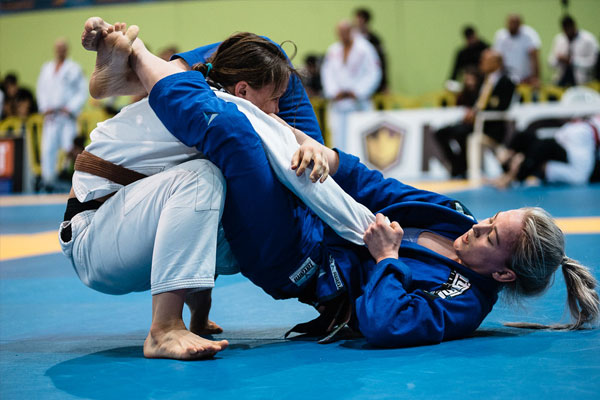Martial Arts Near Me
Brazilian Jiu-Jitsu
Brazilian Jiu-Jitsu (BJJ) is a martial art and combat sport that originated in Brazil. Developed from a modified form of traditional Japanese Jiu-Jitsu, it has gained immense popularity worldwide due to its effectiveness as a self-defense system and its comprehensive grappling techniques. In this article, we will delve into the history, techniques, and current status of Brazilian Jiu-Jitsu.
The roots of Brazilian Jiu-Jitsu can be traced back to Japan, where Jigoro Kano established Judo in the late 19th century. One of Kano's students, Mitsuyo Maeda (also known as Conde Koma), traveled to Brazil in 1914 to spread the art of Judo. Maeda eventually settled in Brazil, where he taught Judo at an academy owned by Gastão Gracie.
Carlos Gracie, one of Gastão Gracie's sons, was particularly drawn to Maeda's teachings and began studying Judo and Jiu-Jitsu under his guidance. Carlos then shared his knowledge with his siblings, most notably his younger brother, Hélio Gracie. Hélio, a smaller and physically weaker individual, adapted the techniques to suit his own physique and created a more efficient and practical system. This marked the evolution of Brazilian Jiu-Jitsu as a distinct martial art.

Throughout the 20th century, the Gracie family worked tirelessly promoting and refining Brazilian Jiu-Jitsu. In several challenge matches against practitioners of other martial arts, the Gracies consistently demonstrated the effectiveness of their art, solidifying BJJ's reputation as a formidable combat system.
The essence of Brazilian Jiu-Jitsu lies in grappling and ground fighting. Its principle is based on the notion that a smaller, weaker person can successfully defend against a larger, stronger opponent using proper technique, leverage, and submission holds.
BJJ emphasizes positional dominance, utilizing a range of positions such as the guard, mount, side control, and back control. The guard position, which involves the practitioner being on their back with their legs wrapped around their opponent, is particularly important within BJJ. It allows the practitioner to exert control, defend strikes, and launch submissions. Techniques such as sweeps, submissions, joint locks, chokes, and positional transitions are vital components of the BJJ arsenal.
Brazilian Jiu-Jitsu gained substantial recognition in the 1990s with the advent of mixed martial arts (MMA). Royce Gracie, a member of the Gracie family, competed in the early Ultimate Fighting Championship (UFC) events, showcasing the effectiveness of BJJ against various martial arts styles.
Since then, BJJ has become an integral part of MMA training worldwide. Its focus on grappling and submissions provided fighters with a significant advantage in ground combat, prompting many to cross-train in BJJ to enhance their skills.
Apart from its prevalence in MMA, Brazilian Jiu-Jitsu has experienced a tremendous growth in its own right as a combat sport. With the establishment of numerous academies and the rise of national and international competitions, BJJ has cultivated a passionate community of practitioners and followers.
The International Brazilian Jiu-Jitsu Federation (IBJJF) is the leading governing body for BJJ. It organizes prestigious competitions such as the World Jiu-Jitsu Championship, attracting competitors from all over the globe.
Furthermore, the growth of BJJ has extended beyond the martial arts community, as it has become a popular choice for individuals seeking self-defense techniques, physical fitness, and mental discipline. The art's focus on constant improvement, humility, and respect has created a welcoming environment that appeals to people from various backgrounds and age groups.
Brazilian Jiu-Jitsu, born out of the innovative approach and adaptability of the Gracie family, has evolved into a recognized martial art and combat sport. Its historical lineage, techniques, and efficacy have contributed to its global recognition and significant influence in the world of martial arts, especially in the realm of mixed martial arts. Whether as a sport or as a self-defense system, Brazilian Jiu-Jitsu continues to captivate and inspire practitioners worldwide, solidifying its current status as a staple in the martial arts community.